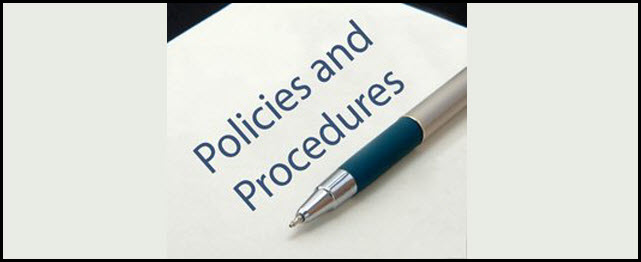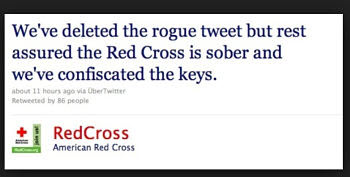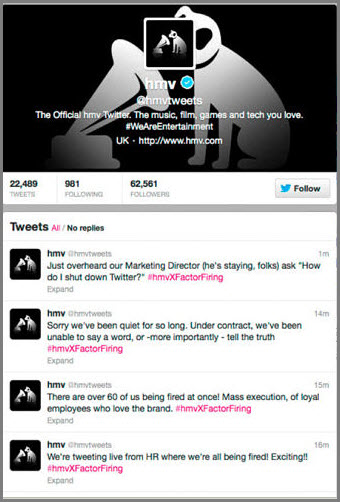Social Media Policy: Is It Necessary?
Is a social media policy necessary?
In a word: YES!
Why is it important?
Reputation management, risk management, and setting expectations and boundaries for employees and executives are just a few of the reasons why every company should have a written social media policy. Whether you have 2 employees or 2 million, your brand’s reputation warrants a social media policy and crisis communications plan.
Let’s get real.
Your brand’s reputation is everything. If you lose trust with your customers, you have nothing. To protect that trust you must ensure that everyone within your organization knows what is expected and consequences for not adhering to those expectations. This is especially true in the realm of social media, where good news travels fast and bad news travels at warp speed.
The intent of a social media policy isn’t to inhibit employees; rather it is to encourage creativity and brand advocacy while setting guidelines and expectations.
Click here to take our quick survey on social media policy and crisis communications.
Where do we start?
First, realize that your policy doesn’t have to be a long document filled with legalese. Simply-worded, forthright policies work best. While you can use available templates and copy from policies of other organizations, yours should be customized to address the needs and requirements of your unique organization. You can find a database of existing policies on the Social Media Governance site here to get an idea of what other organizations are doing.
Rather than an arbitrary set of rules and regulations assembled by one or two executives, policy creation should be a collaborative effort by a team consisting of representatives from many departments (e.g. HR, legal, communications, marketing, customer service). Ask for input from employees. They may have insights and ideas that haven’t been considered by the policy team. Employee input creates ownership of the policy by your entire team.
Nothing’s ever happened to our company, why is a social media policy important for us?
I understand that sentiment. Many company leaders have this mindset. Your company is cruising along just fine, with (or without) a social media presence and everything is working. You see no need to invest in creating a social media policy or crisis communications plan.
That’s what Domino’s thought until two employees posted YouTube videos of themselves doing some rather disgusting things to food –in a Domino’s kitchen.
 You’re probably thinking, “My employees aren’t that stupid. They’d never do anything like that.” That’s probably true, but what if an employee who has access to your corporate social media accounts accidentally tweets or posts something on the corporate account(s) that was intended for their personal account? This happens more often than you may think.
You’re probably thinking, “My employees aren’t that stupid. They’d never do anything like that.” That’s probably true, but what if an employee who has access to your corporate social media accounts accidentally tweets or posts something on the corporate account(s) that was intended for their personal account? This happens more often than you may think.
For instance, this KitchenAid tweet after President Obama’s election:
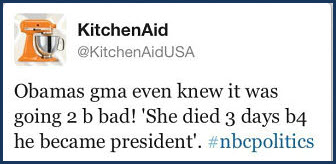 Click here to read more about the fallout for KitchenAid.
Click here to read more about the fallout for KitchenAid.
Or this accidental tweet from a Red Cross employee:
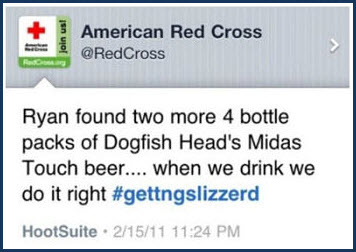 Luckily, in this instance, Red Cross was able to respond with a bit of humor and diffuse the situation quickly:
Luckily, in this instance, Red Cross was able to respond with a bit of humor and diffuse the situation quickly:
Unfortunately, as with the Domino’s and KitchenAid cases, a simple humorous tweet isn’t always enough.
Maybe you heard of the firestorm that was ignited by Justine Sacco, the now former Chief Communications Director at internet giant, IAC? Justine tweeted a racist and ridiculously ignorant tweet (one of many, actually) from her personal Twitter account just before boarding a 12-hour flight to South Africa. It didn’t matter that the offensive tweet was sent from her personal account because her profile referenced her position at IAC. Without doing anything wrong, IAC was drawn into the crisis. You can read that story here. It’s a doozy! The fact that Justine was on an extended flight when reactions began flooding in made it especially difficult for IAC as they were forced to issue a public response prior to having an opportunity to speak to her. Not that there was much she could’ve said to defend herself.
Then there’s the occasion when a disgruntled employee with access to your company’s accounts goes rogue. British entertainment company, HMV, learned a painful lesson when they laid off 60 employees at once in a group meeting:
Do you have a plan in place for any of these scenarios?
How would you handle a situation like Domino’s? How quickly would you respond? How would you respond? Who would issue the response?
What about circumstances like the KitchenAid and Red Cross where accidental tweets are posted to the corporate account? Or, as in IAC’s case, where offensive tweets are posted on an employee’s personal account that happens to reference your company as the employer? What is the protocol if your organization should find itself in the midst of these types of crises?
If employees with administrator access to corporate accounts gets laid off or fired, when is their access to these accounts revoked? How is it done? Who is responsible for revoking access?
These are the questions that can be answered with a social media policy and crisis communications plan. Will you be able to plan for every possible scenario that could happen? No, of course not. Is a time of crisis the best time to try to make these decisions? Absolutely not.
The time has come to get serious about creating a social media policy and crisis communications plan for your company, while ensuring that current and future employees are trained and well-versed on your policy and plan.
You’re only as strong as your weakest link!
Creating a plan without training every employee is an exercise in futility. If every member of the organization isn’t trained and well-versed on the plan, there may as well be no plan. Any weak link can break the chain. Once your plans are in place, it’s imperative that everyone in the organization is appropriately trained. Training should also be included as part of the on-boarding experience for all new-hires.
Click here to take our quick survey on social media policy and crisis communications.
Are you ready to be proactive instead of reactive? Let’s talk about creating a policy for your organization! Contact us today!
Carole Billingsley (@YouSeekSocial) is a social media consultant and trainer. Combining her social media expertise with her decades of experience in entertainment and education, Carole founded Seek Social Media in 2011. She is known for her ability to make technical and social media topics easy to understand for even the least tech-savvy business owner. Specialty areas: social media, customer experience, digital presence, crisis management.

